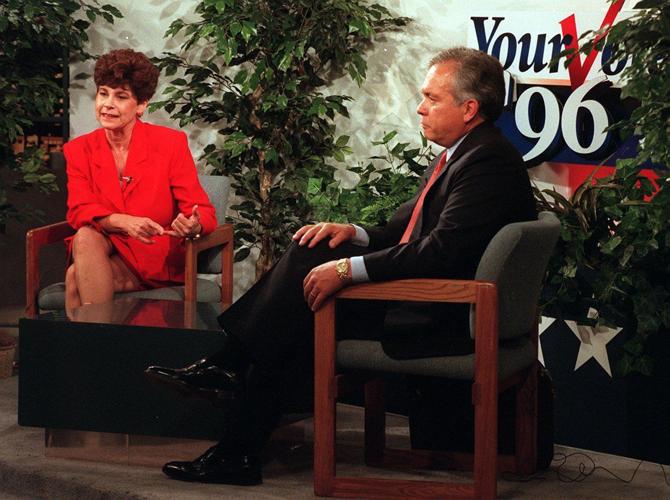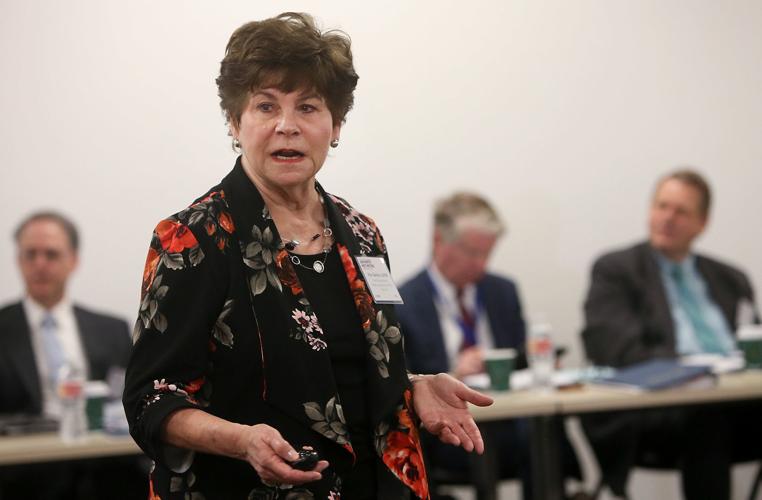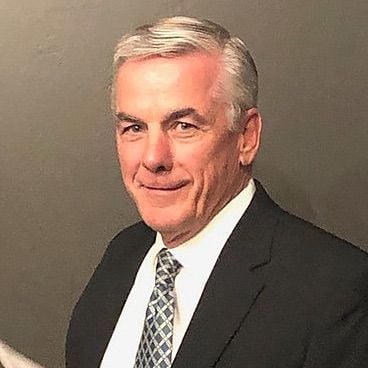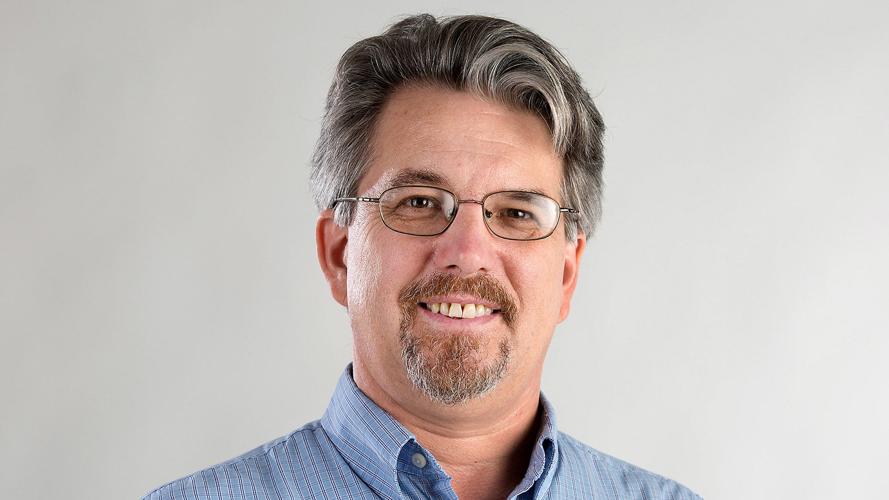The last time the Pima County Attorney’s office came open, an outsider faced an insider in the Democratic primary.
It was 1996, and Rick Gonzales, the outsider, went up against Barbara LaWall, the insider, in a contentious race. Stephen Neely was leaving the office after 20 years, heading for a new life in New Zealand. He endorsed LaWall, a top deputy.
LaWall narrowly beat Gonzales, 51% to 49%, and went on to win the general election and hold office for 24 years.
Now LaWall is leaving, and we have a different kind of outsider vs. insider race. It’s one where the three Democratic candidates agree that criminal justice reform is needed but are arguing about who’s the best candidate to really carry it out. Whoever wins the primary wins the office — there is no other general election candidate.
Laura Conover is a criminal defense attorney in private practice who has galvanized support on the progressive left and among people who want to end the Neely-LaWall ancestral line in the top prosecutor’s office. She’s never prosecuted a case.
“The fact that I have not been prosecuting, in this case, in this office, is my strength, not my weakness,” Conover said during an Arizona Daily Star editorial board meeting. “We are in desperate need, after 40 years, of finally bringing in an attorney, for the first time in 40 years, from outside the office to breathe in fresh air.
“I am convinced we can’t get the change we desperately need without doing that.”
It’s Conover’s strongest argument — that change can’t come from within and must come from an outsider like her, even if that outsider doesn’t have any prosecutorial or much managerial experience.
That’s because the insiders are proposing similar changes to the ones she is. The insiders are Mark Diebolt, a long shot who is a longtime violent-crime prosecutor in the office, and Jonathan Mosher, the heir apparent who became the office’s chief criminal deputy last year.
When I spoke to Conover on Friday, she said of LaWall’s office: “This administration came in at the height of the war on drugs, and it’s never shifted away from that.’
“That’s not why attorneys go to law school, and it’s not why police officers go to academy,” she said. “They are just jailing people with a drug addiction, people who are ill.”
She noted that even as the county pursued an effort to reduce the jail population and as the crime rate went down, the county attorney’s office set a record for felony prosecutions last year, many of them drug prosecutions.
But she’s not the only one who wants to stop putting so many people, especially drug users, in jail. Diebolt, who has run a more traditional campaign as someone who will keep the streets safe, said he doesn’t want to prosecute for a felony anyone possessing less than a gram of illegal drugs.
He also noted, “We’ve learned from this pandemic that we can live and get by with less people in jail. We need to focus on that and keep people out of jail.”
All three of them also want to end cash bails, which can put poor people in a downward spiral.
Construction crews started laying the foundation for a 30-foot tall border wall across the San Pedro River in Cochise County. As of July 8, they already built about a half-mile of wall to the east of the river.
LaWall has endorsed Mosher, but he is taking pains to point out their distinctions.
“There’s a big philosophical difference between Barbara and I,” Mosher told me Friday. “Personal possession of narcotics or dangerous drugs should never result in prison time, ever.”
He said that in a meeting last year, he proposed stopping prosecuting personal-possession drug cases, but LaWall rejected the idea.
“I was told that’s not going to be the policy of the office,” he said.
LaWall confirmed to me Friday that Mosher made the proposal. She said she rejected it because prosecution “is the point when you can get intervention and get them treatment.”
A longtime recovering alcoholic himself, Mosher said he wants to expand treatment programs that LaWall has implemented by 10 times or more. He also said he wants to expand the practice of “pre-charge diversion” — meaning people with addictions would not have to be charged in order to enter treatment.
“It’s a big answer to the bottleneck we have,” he said.
LaWall also defended her legacy, and that of Neely, but said she’s not offended by the focus on reform in the county attorney’s office she has run for so long.
“What people forget about me is that I’ve been a big reformer for the last 24 years. I created drug court. I created drug treatment alternatives to prison,” she said, listening additional programs.
“Unless you’re constantly in renewal, then things fall apart,” LaWall added. “I think it’s great that everyone is out there talking about reform.”
Conover acknowledged some of the efforts LaWall has made, but in LaWall’s first campaign, she wasn’t much of a reformer. The key issues in her campaign against Gonzales were plea bargains and juvenile prosecution. In both cases, LaWall was the hardliner, and Gonzales was the liberal.
Neely set quotas for the number of cases prosecutors should take to trial, which resulted in a higher trial rate, 14% of cases, than in any other Arizona county. LaWall approved of the practice as necessary to judge an attorney’s practice, and Gonzales said the county should plea bargain more and conserve its resources for high-priority cases.
In 1996, Arizona voters were also considering the juvenile justice initiative, Prop. 102, that would require county attorneys to prosecute as an adult any juvenile age 15-17 charged with committing first-degree murder or four other major crimes. LaWall supported it; Gonzales opposed it.
“There was a real, real strong sentiment that we needed more laws and we needed tougher laws,” Gonzales told me Friday.
Now, Gonzales said, “It’s really different than the campaign in ’96. At that time it was who could hang people the highest.”
The outsider in ’96, Gonzales is supporting the insider in 2020 — Mosher. But if you want criminal-justice reform in 2020, then to support Mosher or Diebolt, you have to believe criminal justice can be reformed by an experienced insider.
Photos: El Toro Flicks drive in on a hot night in downtown Tucson
Heat
Updated
Tyler Soto guides a car into a parking slot under a setting sun and temps still above 100 degrees just before showtime at El Toro Flicks, 198 S. Granada, Tucson, Ariz., July 10, 2020.
Heat
Updated
John Montijo fans Amara Gallardo, just a little bit of relief from the 100+ degree heat still holding sway in the early evening before a showing of Super Bad at El Toro Flicks, 198 S. Granada, Tucson, Ariz., July 10, 2020.
Heat
Updated
Emma Stone fills the screen while monsoon clouds roll through the sky to the south, not quite reaching the area during a showing of Super Bad at El Toro Flicks, 198 S. Granada, Tucson, Ariz., July 10, 2020.
Heat
Updated
Camilla Hansen, left, and Emma Bartlett are well provisioned, with everything from pizza to gummy worms, just before the start of the show at El Toro Flicks, 198 S. Granada, Tucson, Ariz., July 10, 2020.
Heat
Updated
Marlena Ruprecht settles in with her friends during a showing of Super Bad at El Toro Flicks, 198 S. Granada, Tucson, Ariz., July 10, 2020.
Heat
Updated
The last of the day's light dies out with Jonah Hill on the screen during a showing of Super Bad at El Toro Flicks, 198 S. Granada, Tucson, Ariz., July 10, 2020.
Otherwise your choice is the total outsider, Conover.













